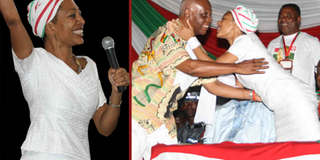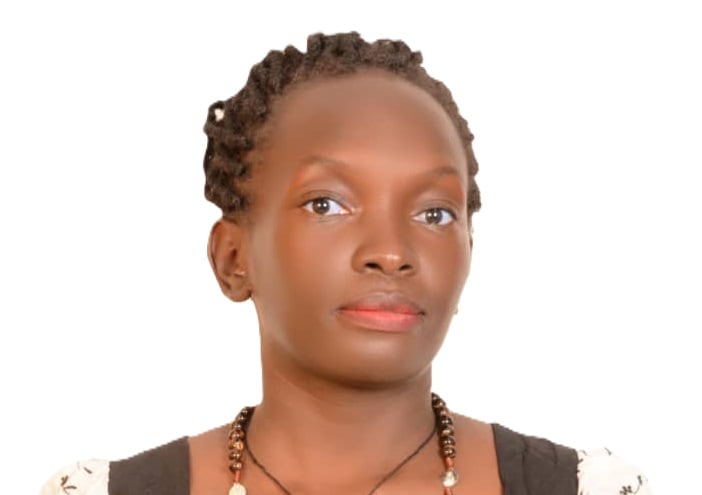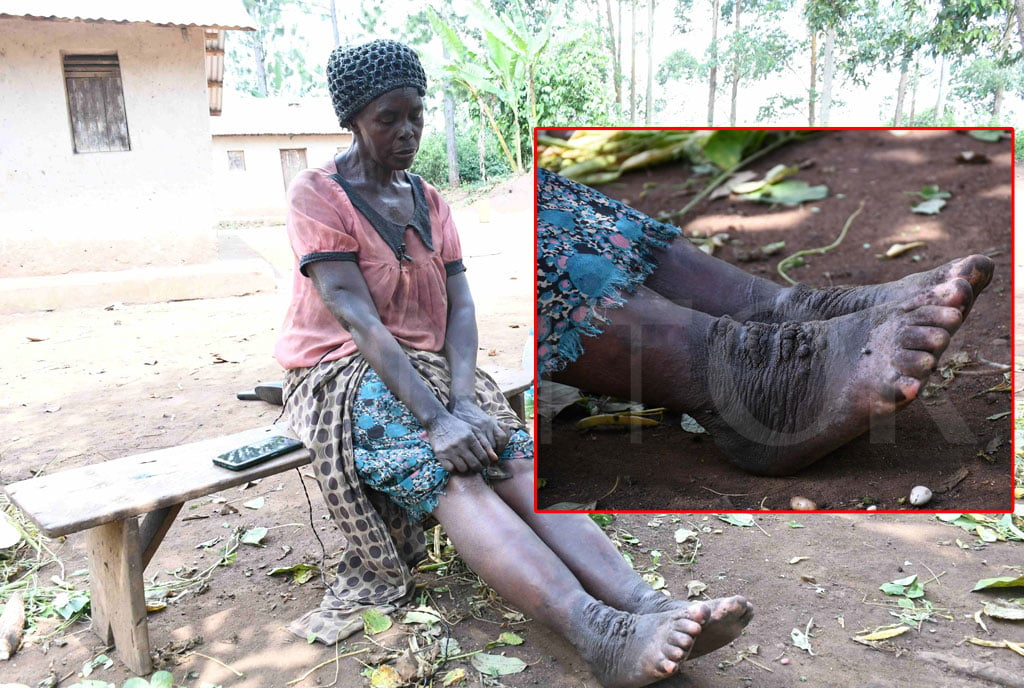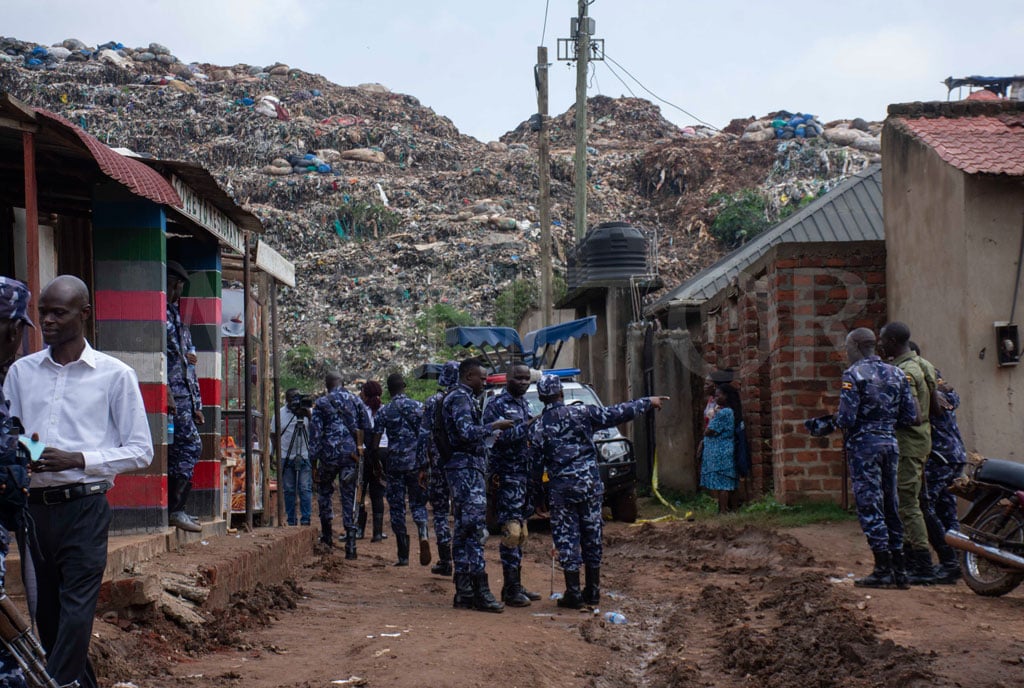Prime
Kwame Nkrumah’s daughter eyes Ghana presidency

Miss Nkrumah is congratulated by members of CCP after winning the party’s top most seat. PHOTO BY FRANCIS KOKUTSE
What you need to know:
After winning the Jomoro constituency seat at her first attempt in the 2008 parliamentary election, Samia Nkrumah now has her sights fixed on the bigger picture, State House.
At the height of his political career, Ghana’s first President, Dr Kwame Nkrumah was almost worshipped by his supporters and they used one accolade among many others, “Nkrumanh Never Dies” to sing his praise.
Thirty-nine years after his death, his daughter, Miss Samia Nkrumah has given true meaning to the accolade by raising the Nkrumah’s name again in the country’s politics with her election as the first woman to lead a political party in the country’s history.
She gave the initial signal two and half years ago when she won a Parliamentary seat and is currently, the only representative of the Convention People’s Party (CPP), the party her father founded about 62 years ago to fight for the country’s independence.
On September 10, Miss Nkrumah made history to become the chairperson of the CPP, signaling further her desire to redeem the father’s glory as well as pushing further her ambition to become the country’s first female president, something she has set her eyes upon.
She, however, has a lot of work to do. The party has almost lost its lustre and the appeal with which the people held the father even though the name still evoke some special emotion, especially among the older generation. For many of the country’s youths, there is no connection with the name Kwame Nkrumah apart from what the history books tell them. The younger generation seems to be attached more with former President Jerry Rawlings, the name they grew up with in the 1970s till now.
Despite this challenge, Miss Nkrumah has expressed the desire to become the country’s president and her election is perhaps her first step to achieve this goal. Her initial task is to re-organise the party that has been so much divided and winning back her father’s former allies now in rival political parties. Undaunted, Miss Nkrumah who is the party’s only representative in Parliament is aware of the huge work ahead of her but states that, the unity of the party is needed to move the CPP out of its present state of near decay.
The CPP party lost most of its support base to the ruling National Democratic Congress (NDC) founded by Mr Rawlings in 1992 with the assistance of some key supporters of Dr Nkrumah. One of these is President John Atta Mills, who has his roots in the CPP and so is the minister of finance, Dr Kwabena Duffuor, who was co-opted from the CPP to become a minister.
There are also other leading members of the NDC who openly say they have their roots in the CPP.
What brought about this was the proscription of the CPP in the country’s politics after 1966. The only time supporters of President Nkrumah were allowed to group together was in 1979 when a new political party was formed-the People’s National Convention. In 1992, the rules were relaxed and CPP was given a re-birth. Since then, it has been very difficult for the party to win the votes it has always hoped for.
With the NDC now a political force, it does not look likely that those who have used the party to build their career would be ready to move back into the CPP fold and likewise, the CPP leadership may not want to be co-opted by the NDC, as a result the two parties would have to fight for the soul and minds of the people which is a tall order for the CPP. In order for the party to become a force in the country’s political landscape, former national youth organiser of the party, James Kwabena Bomfeh says, “those Ghanaians who believe in the ideology of Dr Kwame Nkrumah must join hands to move the party forward”. This is a clarion call but, whether or not, those who indeed claim to be true supporters of Nkrumah would heed to is difficult to tell.
“Our house has been rebuilt, it’s properly roofed, there are many rooms in my father’s house; come and stay in and you will enjoy…” Mr Bomfeh said, adding that, with all Nkrumaists under one roof, the CPP can give Ghana what it deserves - an honest, open, transparent government.
He says the election of Miss Nkrumah must be seen as bringing back the confidence that the people have in the party and said, there would be total change in the way the CPP is run and this would make the party compete better with the other political parties.
“The better government that Ghana was promised in 1964 under the seven-year development programmes, drawn by the Dr Nkrumah would see fruition when the CPP assumes the reins of power,” Mr Bomfeh added.
He said, “by the end of this programme, no Ghanaian should want in the basic needs to life - food, water, health, shelter, clothing and above all disease and illiteracy shall be brought under control and where every Ghanaian child shall aspire to the fullest of their educational potentials and that Ghana shall become the economic giant of Africa.”
======================================================
About Kwame Nkrumah
Kwame Nkrumah, born in 1909 left the then Gold Coast to study in the United States and later found himself in the UK. He however barged into the country’s political scene in 1947 after he was invited to return home to help the United Gold Coast Convention (UGCC) to fight for the country’s independence.
He did not stay with the UGCC for long as he had his own plans and left to form the Convention People’s Party (CPP) with which he finally won the much desired independence for the country in 1957. Nkrumah was also perhaps best known politically for his strong commitment to and promotion of Pan-Africanism.
Unfortunately for Nkrumah, even though he was being hailed outside the country for his Pan-African efforts to ensure that the rest of the continent was freed from colonial rule, he had to contend with how to keep his grip on power. There were several attempts on his life and finally his overthrow in bloody military coup in 1966.
The National Liberation Council that took over the country proscribed the CPP and for many years, even the mention of the name Nkrumah was not allowed.
Some of his followers had to denounce him whilst others went to jail or exile.
It was until 1992 that, the party was allowed back into the country’s political landscape. The long absence had more or less, destroyed its name and it is taking those who have tried to rebuild it some time to do so.




